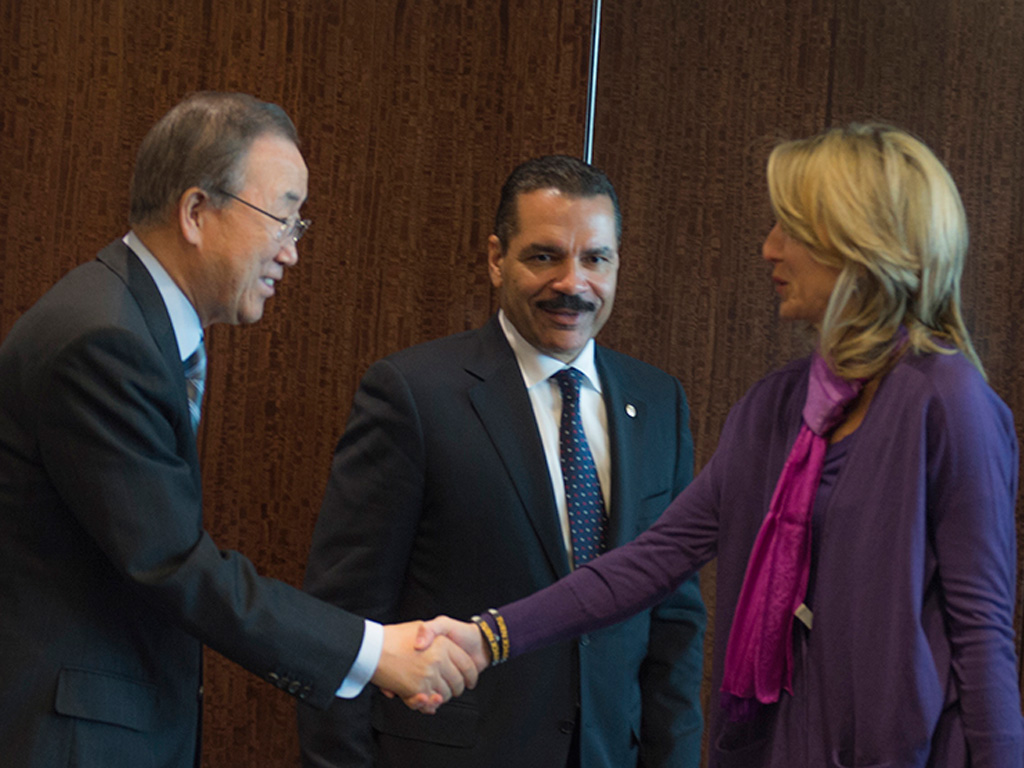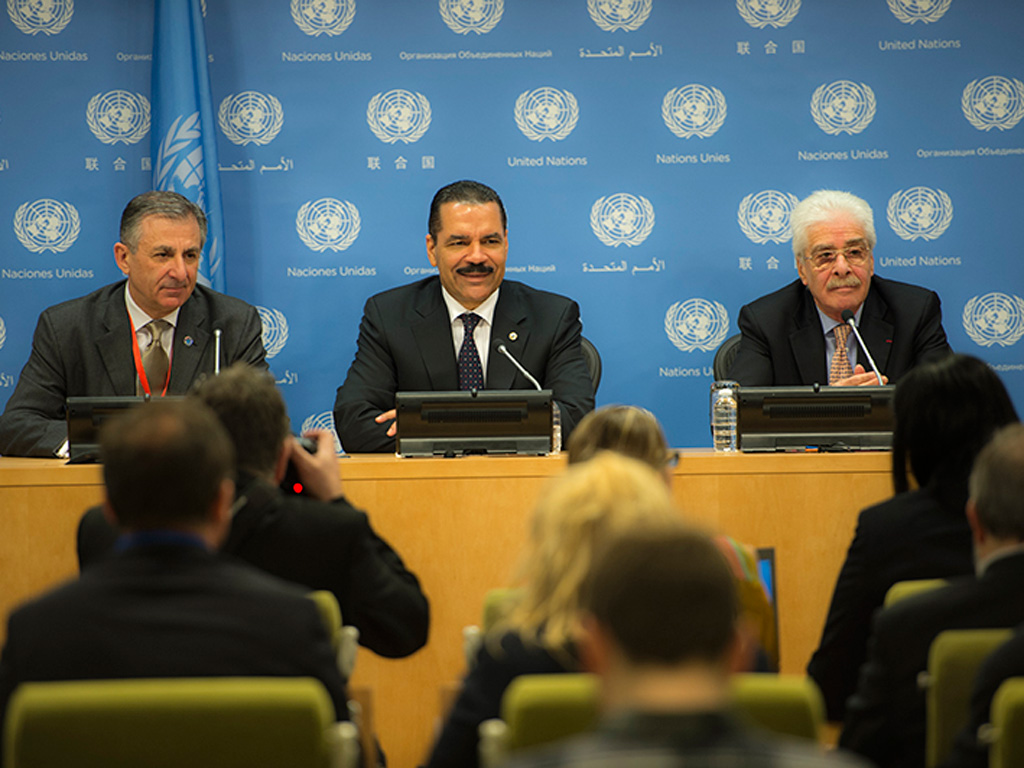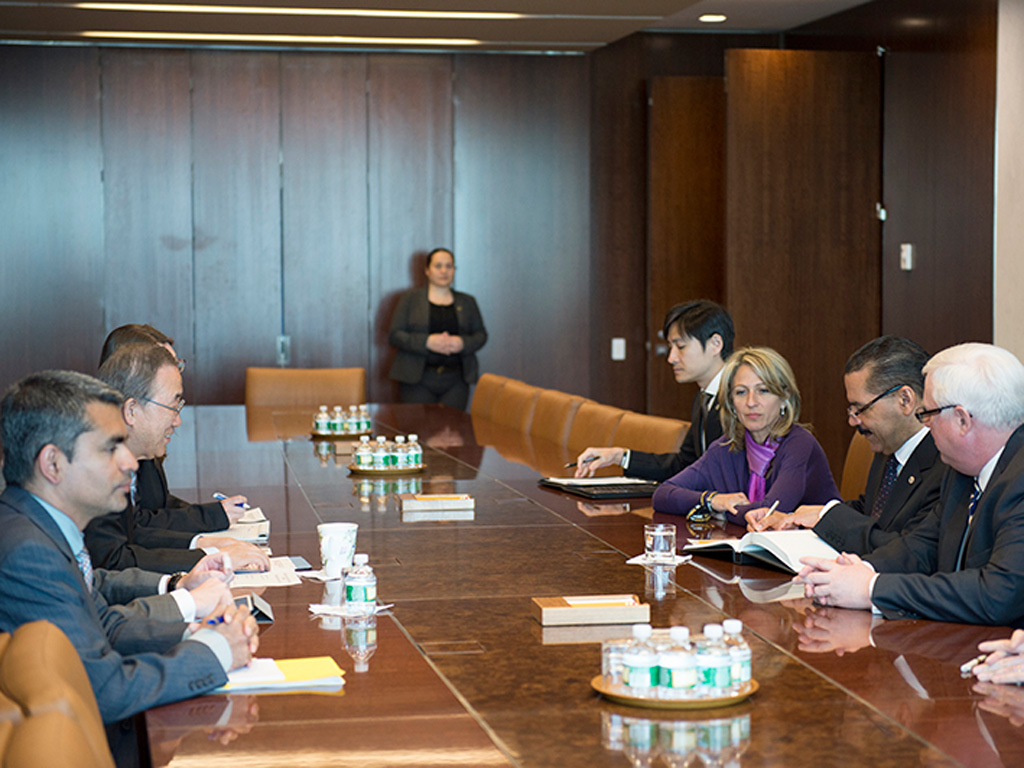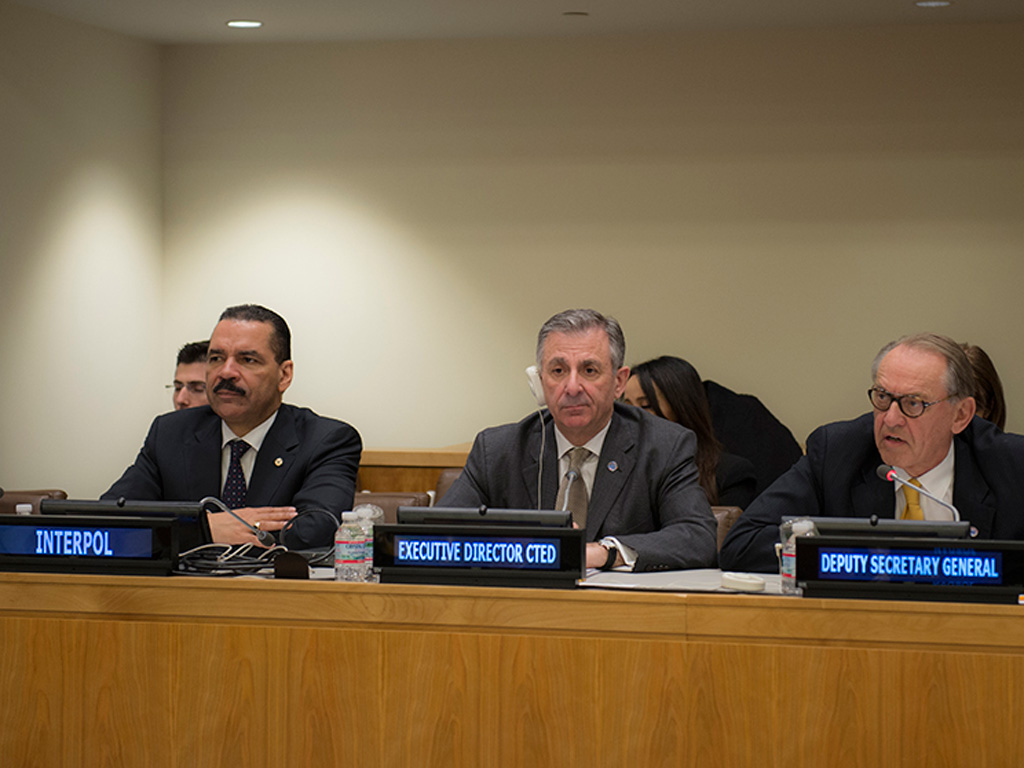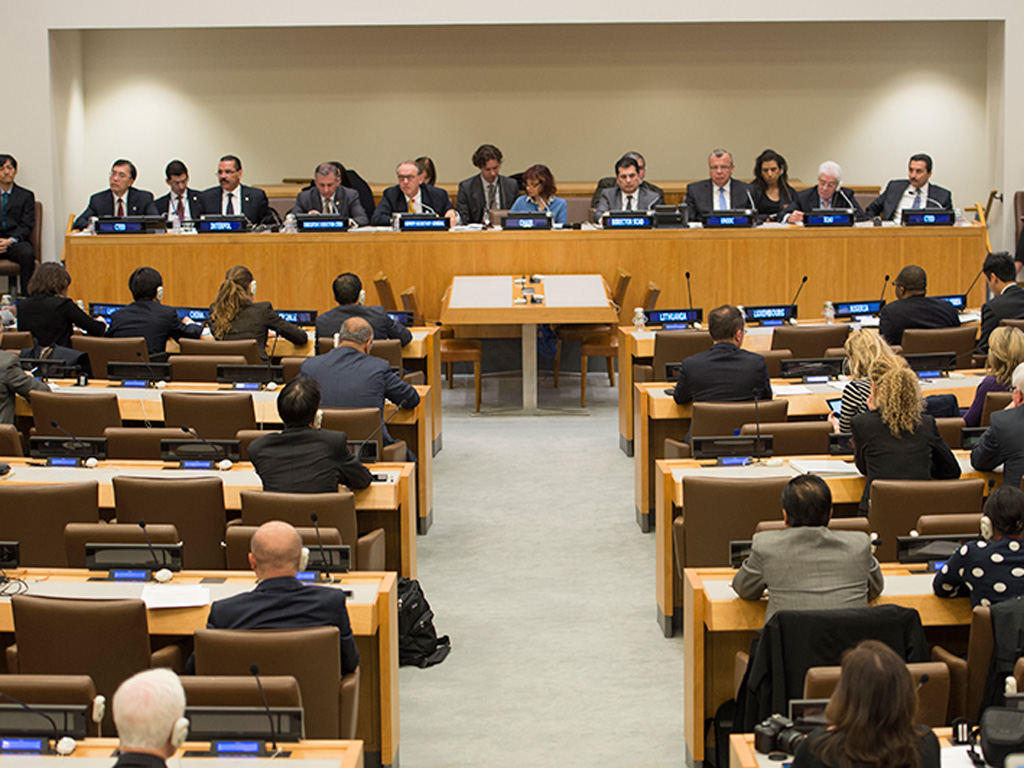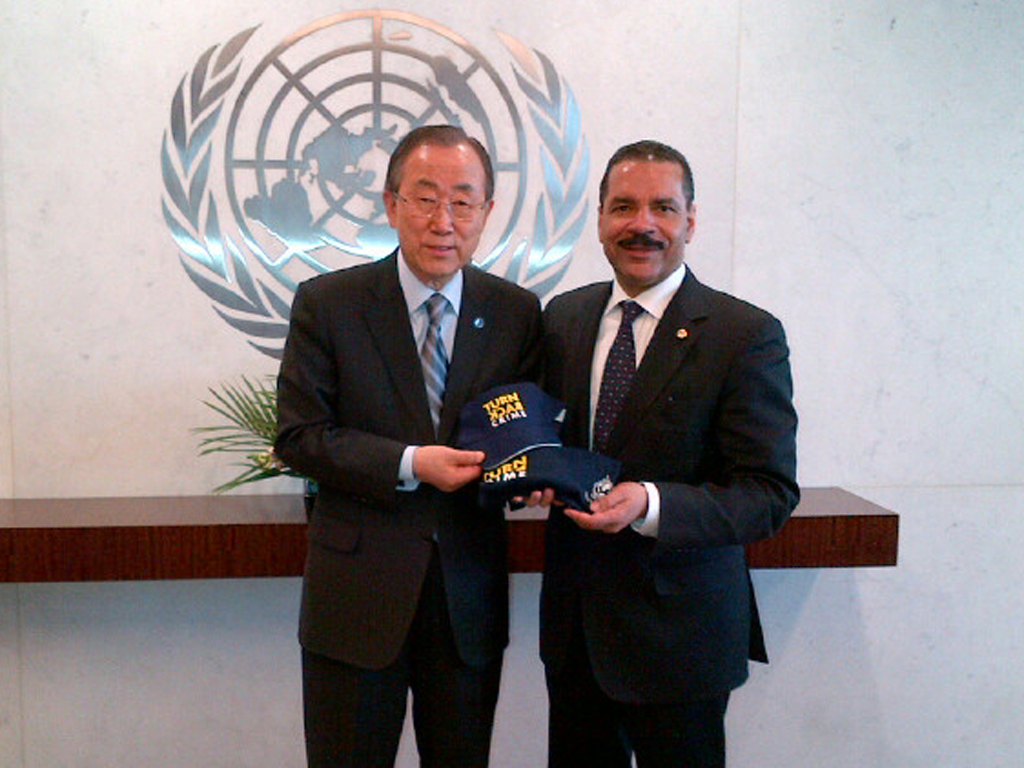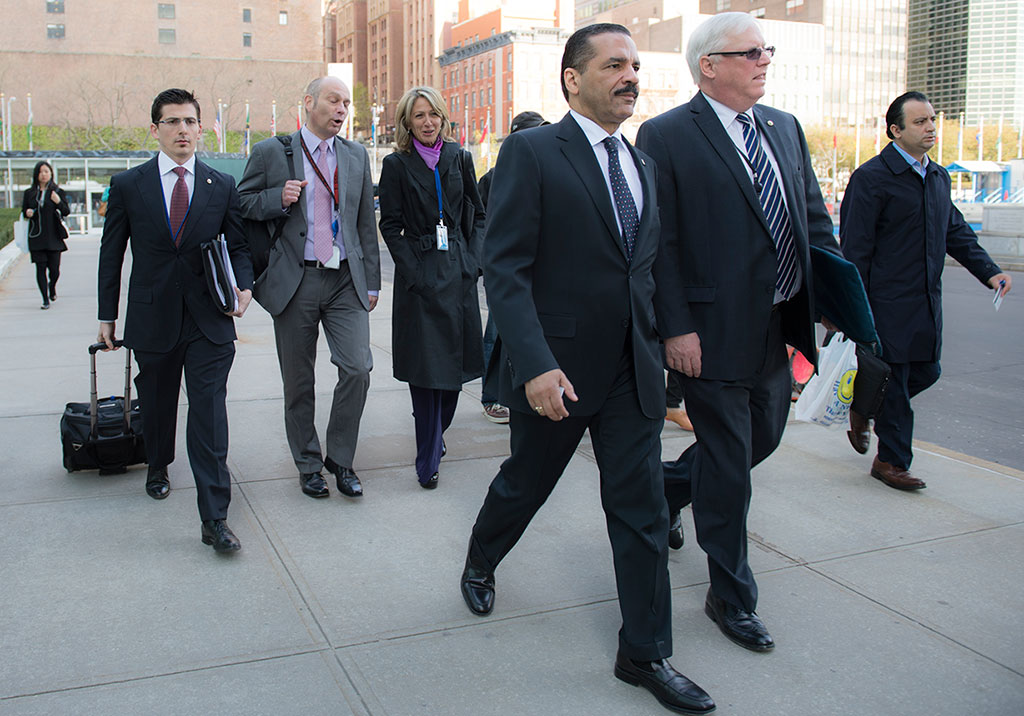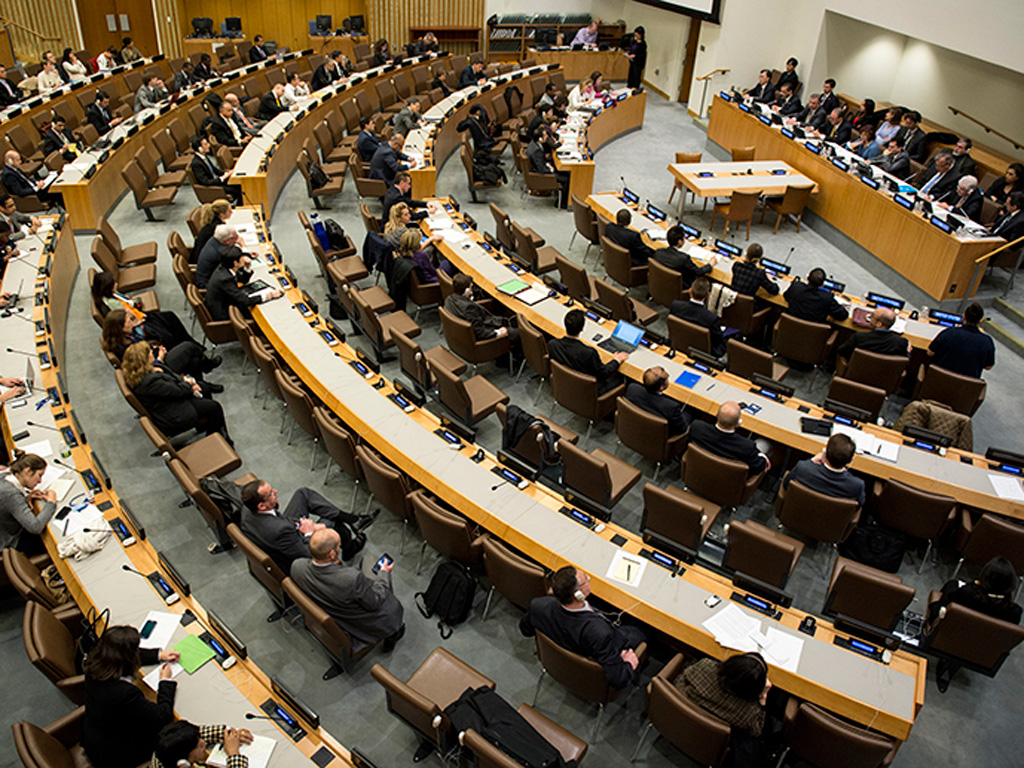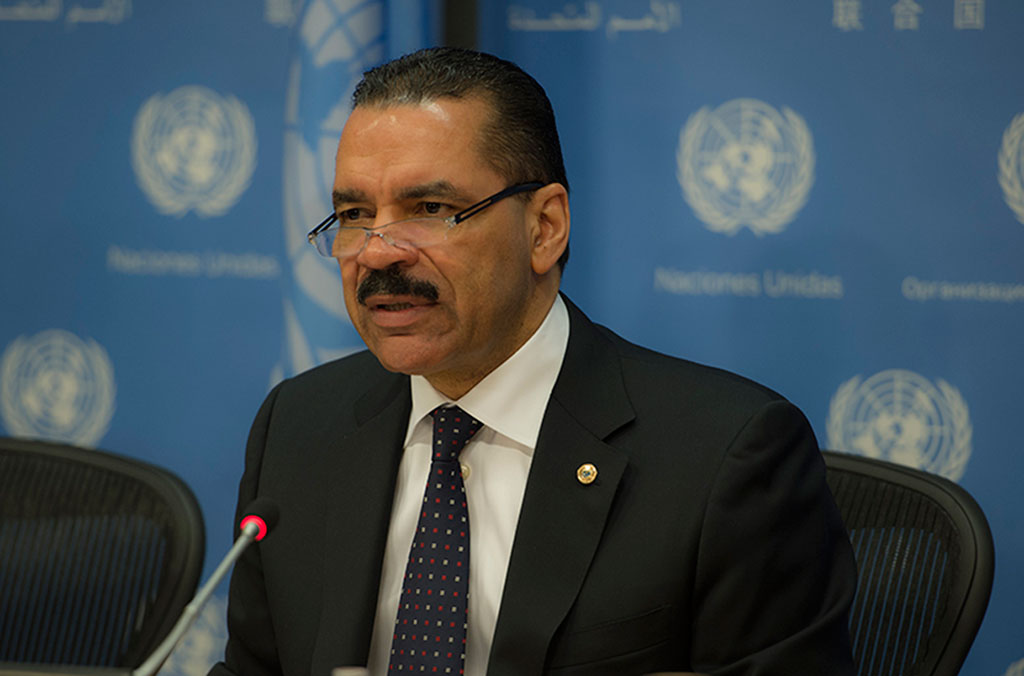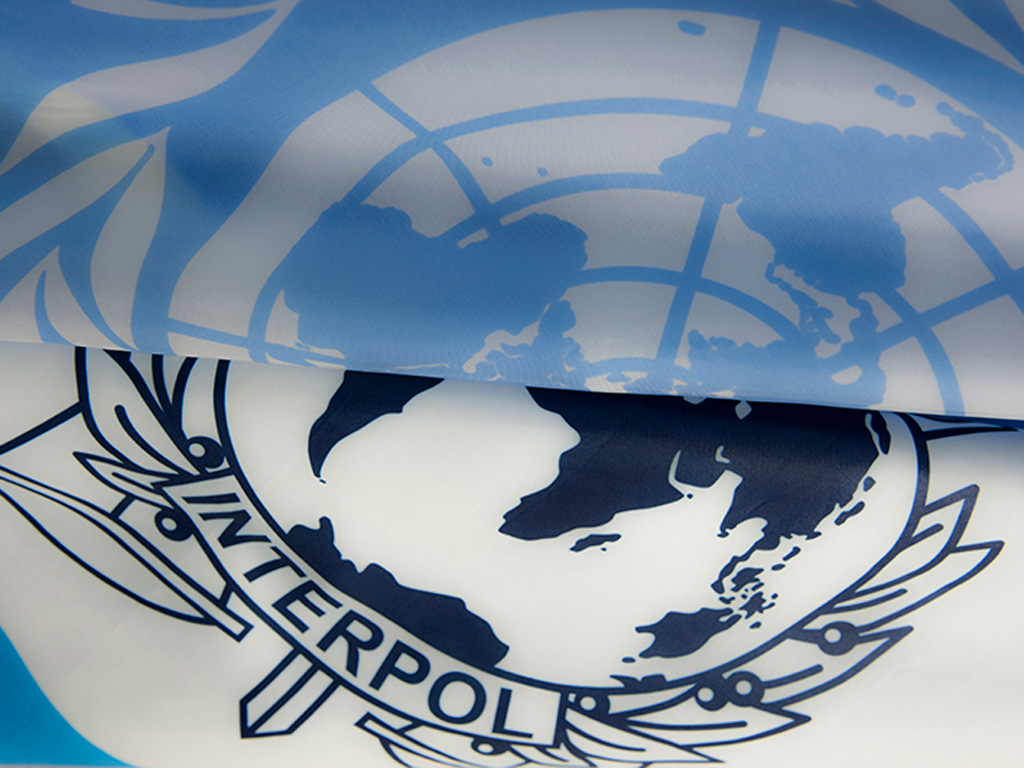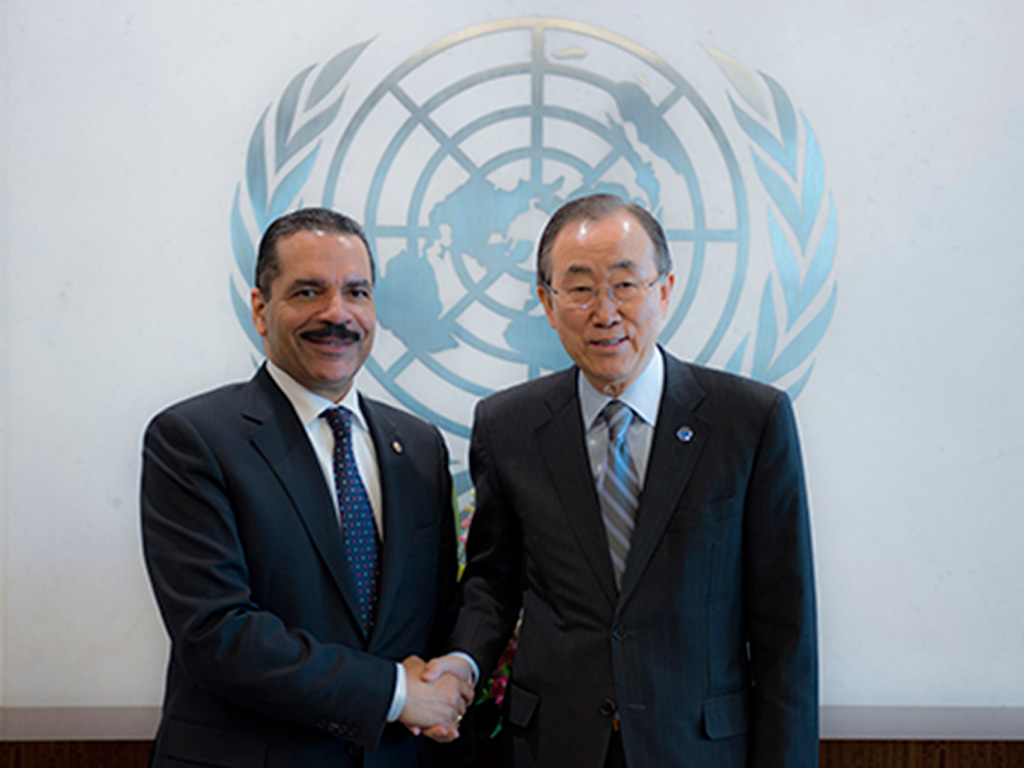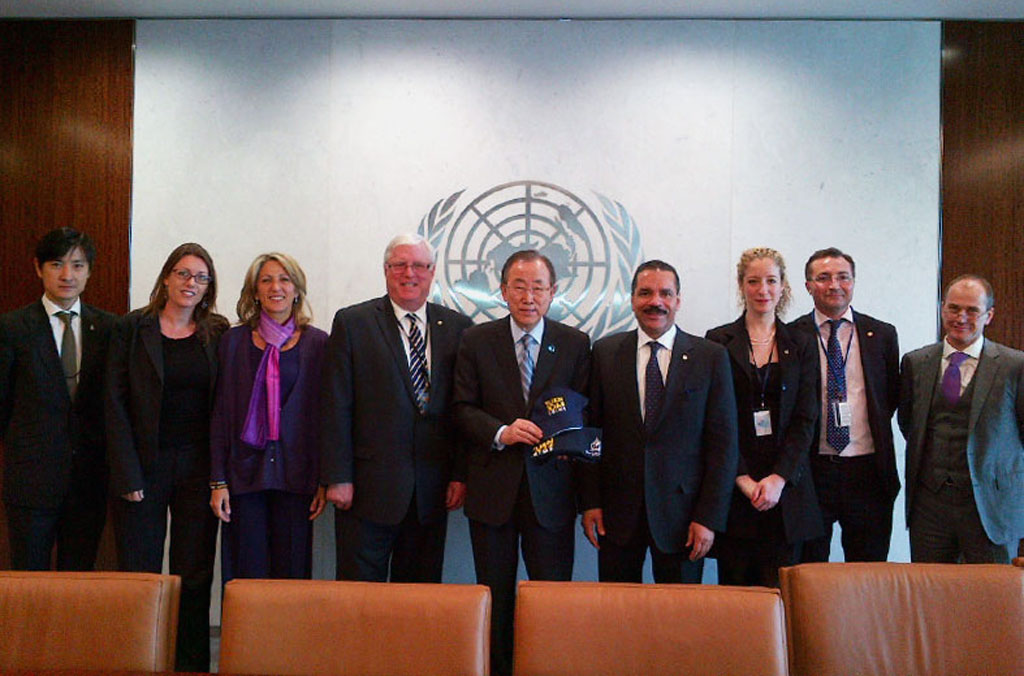UNITED NATIONS, New York – A meeting between INTERPOL Secretary General Ronald K. Noble and UN Chief Ban Ki-moon provided an opportunity for the two world bodies to further their close cooperation. Earlier, Mr Noble told a UN counter-terrorism briefing that global action on preventing and combating terrorism must look to enhance travel document security.
With 2014 seeing the centenary of international police cooperation, UN Secretary General Ban Ki-moon said: "I welcome today’s meeting as an important opportunity to advance cooperation between the United Nations and INTERPOL. As we mark the 100th anniversary of international police cooperation, I am confident that we will further strengthen our fruitful partnership to foster a safer and more stable world."
Describing the UN as one of INTERPOL’s strongest partners, Mr Noble said: “Collaboration between INTERPOL and the United Nations recognizes the enduring role of international policing in forging and bolstering sustainable security across the globe, and of the dedicated men and women who serve its cause.”
Cooperation between INTERPOL and UN Security Council Sanctions Committees has seen more than 400 INTERPOL–UN Security Council Special Notices issued against entities and individuals. The opening in 2004 of the Office of the Special Representative of INTERPOL to the United Nations in New York has also strengthened the relationship and streamlined the work between the two organizations.
Secretary General Noble also discussed INTERPOL’s Turn Back Crime global awareness campaign. It aims to engage with all sectors of society, including the public, to highlight how organized crime infiltrates our daily lives and the role all can play together in making the world safer.
Speaking earlier at a high-level open briefing before the UN Counter-Terrorism Committee (CTC) and its Counter-Terrorism Executive Directorate (CTED), Secretary General Noble said that some 20 years since Ramzi Yousef entered US soil on a stolen Iraqi passport to carry out the first World Trade Center bombing, ‘stolen and lost travel documents are still in the hands of international terrorists’.
With at least 400 million out of the 1.2 billion international passengers in 2013 not screened against INTERPOL’s Stolen and Lost Travel Documents (SLTD) database which holds more than 40 million records, Mr Noble said the role of travel document security in preserving lives will be ‘fundamental to avoiding the collapse of global security over the next decade’.
“History and past bloodshed have taught us that transnational terrorists will cross borders time and again to complete their distorted mission,” said the INTERPOL Chief.
“The time to act is now. The time is now for the United Nations, for the Counter-Terrorism Committee and for its Executive Directorate to join INTERPOL and make it a global priority to close this security gap.
“What is clear is that the failure by countries to systematically screen identity documents has left the general public and the private sector alone to face this threat,” said the INTERPOL Chief.
Mr Noble pointed to INTERPOL’s I-Checkit initiative which will enable the public and private sectors to identify the fraudulent use of travel documents, as well as detect and prevent illicit transactions.
The CTC briefing included UN Deputy Secretary General Jan Eliasson, CTC Chair Raimonda Murmokaité, ICAO Secretary General Raymond Benjamin, UNODC Executive Director Yury Fedotov, and CTED Executive Director Jean-Paul Laborde.




